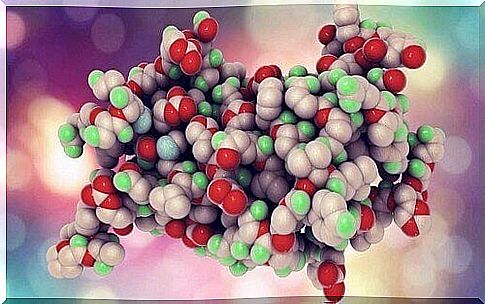Stress Hormones: What Are They?

Stress hormones are essential for any living thing. Escaping from danger, reacting to the demands of the surrounding environment, taking action to find a solution to problems or simply activating all our mental resources to face an exam are essential mechanisms in which these small but powerful molecules intervene.
It is enough to hear the word “stress” to associate it with clearly negative experiences. Its effects are known to all. In fact, most of us will have experienced a period full of worries or in which the pressures from the outside world have then resulted in muscle aches, digestive disorders, headaches, insomnia. The physiological changes brought about by these hormones can be very intense and exhausting.
However, one aspect must be clarified. Without these chemical reactions, the human being would not have survived. The stress response has allowed us to react to daily obstacles, so that we can adapt to an increasingly complex context.
Well, even if today we don’t have to defend ourselves from the same dangers from which our ancestors of prehistory had to defend themselves, the pressures from the outside world still represent a challenge. Understanding the hormone-activated mechanisms associated with this type of emotional response is always helpful and fascinating.
What Are Stress Hormones?
We are all programmed to react to any kind of threat, whether it is a specific external danger or an internal concern. Nowadays, work-related situations, economic or emotional problems act as a trigger for stress.
The threats, dangers and challenges are now invisible: they cannot be touched or glimpsed as they once were, when our ancestors had to contend with a predator. The natural response to stress allows us to activate an infinite number of physical and psychological resources useful to face any danger, and all of this is normal, and is even desirable.
The real problem arises when the stress continues over time. If it results from inadequate obstacle management, if we don’t make good use of adaptive strategies, the stress hormones will continue to stay active. Just then, physical discomfort and risky situations for our health arise. So let’s find out how this hormone network works and how it works.
Cortisol, the hormone that makes us react
Cortisol is a steroid hormone that regulates a wide range of physiological processes. Although it does not play a decisive role in our response to stressful situations, it is fundamental in metabolic and immune functions.
The secretion of cortisol is regulated by the hypothalamus, the pituitary gland and the adrenal glands. Almost all cells contain cortisol receptors, which gives us an idea of the large number of processes in which it takes part.
For example, it is essential to regulate blood sugar levels, salt and water balance and blood pressure. Cortisol levels are highest during the day, as they help us stay active during the day.
On the other hand, when we experience long periods of stress and anxiety, the excessive secretion of cortisol can have harmful effects. These include the appearance of hypertension, mood swings, muscle aches, osteoporosis and even body weight fluctuations.

Adrenaline allows you to react to danger
When we experience stressful situations, the hands sweat, the heart speeds up and the mouth dries. This response is regulated by one of the most important stress hormones: adrenaline, or epinephrine.
This hormone also acts as a neurotransmitter, is secreted by the adrenal, or adrenal, glands, and is released especially in times of stress, danger and overexcitation. All the changes caused by the release of adrenaline into the bloodstream have one goal: to prepare the body for fight or flight.
- The heartbeat accelerates.
- It increases the capacity of the respiratory system as well as lung capacity.
- Glycogen (polysaccharide which forms the energy reserves and which is stored by the muscles and liver) is broken down.
- The blood vessels dilate, promoting increased blood flow.
- It improves the connection between nerve cells, resulting in an increase in the flow of information.
Vasopressin, modulator of the stress response
Vasopressin is also known as an antidiuretic hormone ; this means that it promotes water retention. In recent years it has been found to be an important element in the stress response.
The study conducted by the University of Edinburgh in 2017 offers us useful data for a better understanding of its important role:
- Vasopressin has a modulating effect on the body’s response to stressful or anxiety-provoking situations.
- Among the stress hormones, vasopressin could play a key role in stimulating the release of corticotropin. This biological element favors the secretion of corticosteroids such as cortisol.
- This hormone manifests itself in a series of hypothalamic neurons that control the response to stressful environmental challenges. This means that when the brain thinks that a challenge is ahead of us, it releases this substance to activate a series of fundamental biochemical changes that make us react.
Stress hormones: conclusions
Any dynamic that causes the brain to respond to daily dangers has no other purpose than to allow us to deal with them. After all, this is the purpose of stress: to make us react in front of the danger, so as to solve it. Letting worrying and distressing situations persist over time has negative consequences. Let’s keep that in mind.









